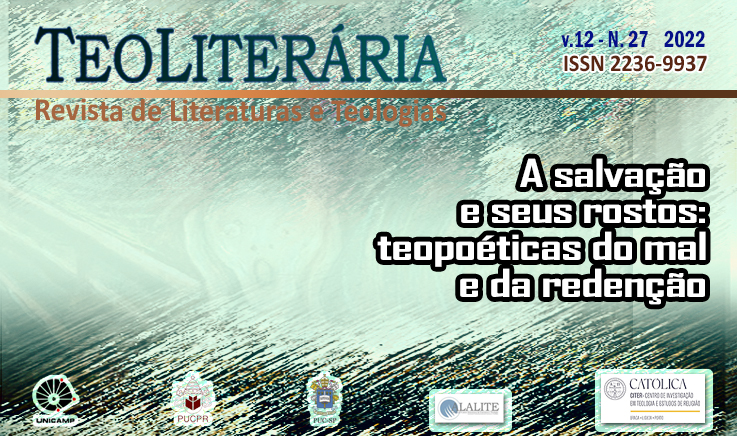Libro y profecía: la Commedia dantesca como utopía
DOI:
https://doi.org/10.23925/2236-9937.2022v27p97-107Palavras-chave:
Veltro, Profecía, Renovatio Cristiana, Commedia, Dante AlighieriResumo
La poesía es, también, futuro. Esto es especialmente válido en La Divina Comedia, de Dante Alighieri, en donde el poeta italiano, ya desde el primer canto, pondrá en boca de su Guía, poeta, maestro y padre, Virgilio, una profecía, consuelo ante la presencia del mal, alegorizado en tres bestias que cierran la Anábasis de Dante personaje: “infin che ‘l Veltro / verrà, che la farà morir con doglia” (Infierno, I, vv. 101-102). La figura esperada, el mastín (Veltro), quien derrotará a la Loba (que es la Avaricia, pero también es Roma) remite al Milenarismo propio de la Revelación, pero también a las ambigüedades de la política. Esta doble lectura, a la vez sacra y laica, ha dado lugar a teorías muy variadas y, en ocasiones, insólitas. Sin embargo, hay una de ellas en donde lo sacro y lo laico convergen. Una Utopía donde un mesías traerá el fin del mal en las acciones humanas. En nuestro trabajo, nos proponemos indagar en la esencia de esta utopía.
Referências
ALIGHIERI, Dante. La Divina Comedia. Infierno. [Trad. de Ángel Battistessa.]. Buenos Aires: Asociación Dante Alighieri, 2003.
ALIGHIERI, Dante. Monarchia. En Tutte le opere. Roma: Newton, 1997.
BORGES, Jorge Luis. Obras completas. Buenos Aires: EMECÉ, 1974.
LUZI, Mario. Vero e verso. Scritti sui poeti e sulla letteratura. Milano: Garzanti, 2002.
MAGNAVACCA, Silvia. Léxico técnico de filosofía medieval. Buenos Aires: Miño y Dávila, 2005.
MAGNAVACCA, Silvia. Virtud, sabiduría y amor. La Divina Comedia como Renovatio Cristiana. En Revista Philosophica, nro. 47-48. Pontificia Universidad Católica: Valparaíso, 2015, p. 7-20.
PASSERIN D’Entréves, Alessandro. Dante polittico e altri saggi. Torino: Einaudi, 1965.
WARNKEN, Christian. Entrevista con Claudio Magris, 2012. En www.unabellezanueva.org.
Downloads
Publicado
Como Citar
Edição
Seção
Licença
Copyright (c) 2022 TEOLITERARIA - Revista de Literaturas e Teologias

Este trabalho está licenciado sob uma licença Creative Commons Attribution 4.0 International License.
A TeoLiterária – Revista de Literaturas e Teologias é detentora dos direitos autorais de todos os artigos publicados por ela. A reprodução total dos textos em outras publicações, ou para qualquer outro fim, por quaisquer meios, requer autorização por escrito do editor. Reproduções parciais de artigos (resumo, abstract, mais de 500 palavras de texto, tabelas, figuras e outras ilustrações) deverão ter permissão por escrito do editor e dos autores.



